CEPE/ETHICOMP 2017: Values in Emerging Science & Technology
Helen Smith is a PhD student, University of Bristol, who was awarded IME funding to enable her to attend CEPE/ETHICOMP 2017: Values in Emerging Science & Technology on 5-8 June in Turin, Italy. Read her report below
Ethicomp is a series of conferences which consider computer ethics conceived broadly to include philosophical, professional, and practical aspects. It has held conferences since 1995 in Europe and Asia. CEPE (Computer Ethics and Philosophical Enquiry) has been running since 1997 and is more narrowly focussed on the philosophical aspects of computer and information ethics. The CEPE/Ethicomp 2017 was the third joint event which they have held, this time kindly hosted by the Department of Law at the University of Turin, Italy, from 5-8 June 2017.
Around 100 delegates attended; I met professionals, students and academics from Europe, Asia, Australia and North America. The interdisciplinary ethos meant that there were contributions brought from a variety of sectors such as computer scientists, policy makers, lawyers, ethicists, philosophers, social scientists, gaming as well as health technology. The warm, friendly and supportive attitude within the attending community encouraged space for constructive feedback after presentation of each contributor’s paper.
Those presentations which were specifically relevant to the medical ethics community included:
Katleen Gabriel’s presentation “Between ‘Entertainment Medicine’ and Professionalization of Healthcare: An Interview Study of Belgian Doctors” identified the rise in enhanced selfcare utilising new technology e.g. blood pressure monitoring, blood sugar monitoring. Her study asked Belgian GPs and Cardiologists how they’d felt about the rise of the use of digital tracking. Patients wanted more dialogue with their doctors and did not wish for the technology to surpass their physician’s expertise. Unreliable tech had made one cardiologist angry as it was taking his time away from people who had genuine needs. Drs did not feel that they were losing their authority to tech, but were afraid of the data overload and loss of context. Overall, with data gathered, one can have a clear and more accurate conversation with patients. But the time saved will probably get used to see extra patients rather than spending more time with the individual patient.
Frances Shaw’s presentation of “Ethics in the design, research, and evaluation of mHealth and eHealth solutions for mental health: a qualitative study of a research institute” reported on the ethical development she has been doing for the Socialize App (a smartphone app which associates changes in social networks over days/weeks may indicate mental health problems developing) which is in early prototyping. There is concern for the maintenance of privacy as GPS data discloses the home and workplace of individuals and that this data creation is passive and opposite to the act of active and willing disclosure of illness; that disclosure is made on behalf of the individual rather than by the individual which interferes with the person’s agency. She identified that Big Data is shaping our state of being and that we should anticipate the development and then theorise the ethics before application rather. For example; there is no identification of the responsibility of initiating the intervention for the person who has been identified as being at risk of being mentally unwell- who should respond once the app has raised the alarm?
David Krep’s and Oliver Burmeister’s presentation of “I am a Person” spoke of how we are both radically contingent and unique, that in age related cognitive decline the physical motor accompaniment to our mental and emotional lives begins to deteriorate. Value Sensitive Design (VSD) seeks to explicitly support human values in assistive technologies. Through this, power can be identified in an intentional way which will help with the realisation of a society in which technology is a force for empowerment rather than for domination.
I would like to take this opportunity to thank the Institute of Medical Ethics for making it possible for me to attend this event.
